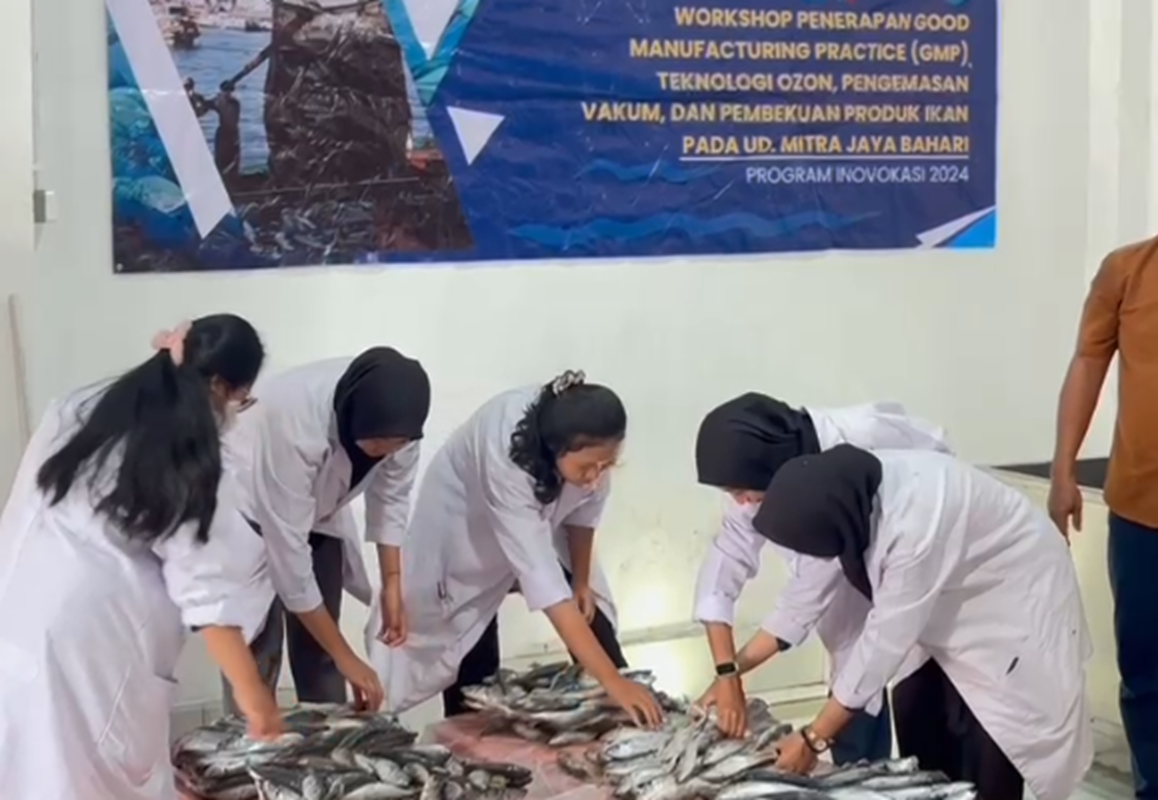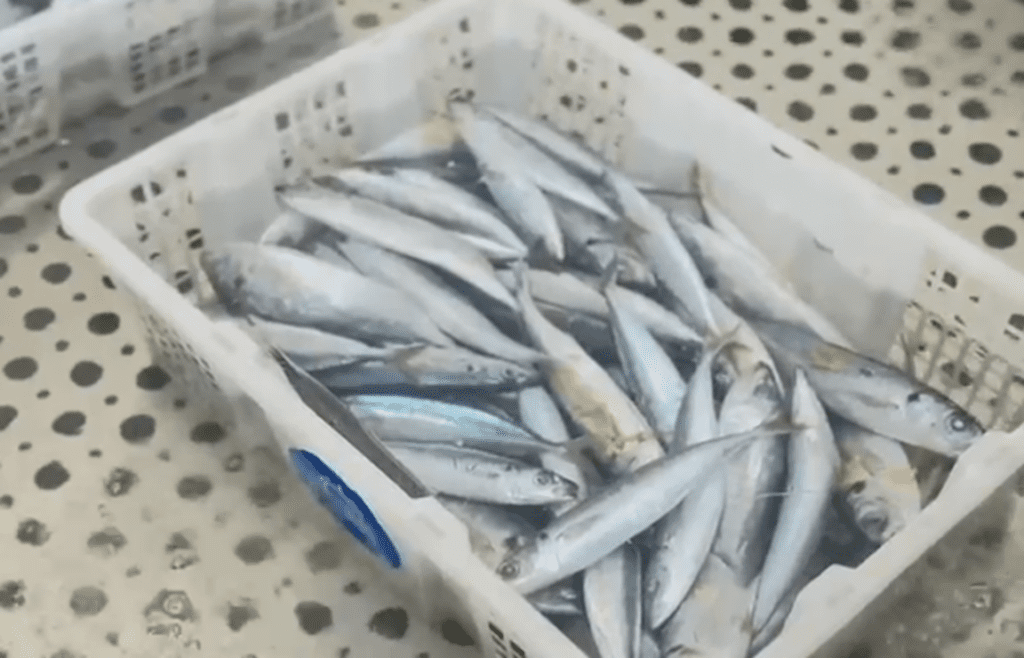

Politeknik Negeri Jember (Polije) lecturers held a technology innovation activity aimed at introducing and implementing the latest technology in the fisheries micro-industry. This activity focused on ozone technology, vacuum packaging, and freezing of fish products, and took place in Puger District, Jember Regency. This activity is a form of cooperation between Polije and two industrial partners, namely Mitra Jaya Bahari and Mina Lestari.
Abi Bakri, M.Si., as the Chairperson of the Implementation of Ozone Technology Innovation Activities for Vacuum Packaging and Freezing in Fisheries Micro Industries, on this occasion expressed his deepest gratitude to the Directorate of APTV through the Kedai Reka platform, which has provided funding and facilitation to carry out this community service.
At Mitra Jaya Bahari, newly arrived tuna is immediately processed with ozone technology and vacuum packaging. The process starts with thawing first to clean the fish before ozonation.
“After thawing, the fish is put into ozone water. The ozone immersion process is carried out for 15 to 30 minutes to maintain the freshness of the fish and reduce bacteria,” Abi Bakri explained.
After the fish has gone through the ozonation process, it is then frozen to maintain its quality. The next process is packaging using vacuum technology, which aims to make the fish more durable and ready to market.
At the second partner, Mina Lestari, the process is slightly different. Here, fresh layur fish is used in the ozone process.
“Although there is no thawing process here, the layur fish used is still ozonated for 15 to 30 minutes. The result of this process is a fresher-looking fish with shinier skin,” he explains.
After the annealing process, the fish is then packaged using vacuum technology to ensure the fish remains durable, hygienic, and ready to be marketed to consumers.
“We are very grateful to the Directorate of APTV through the kedaireka platform for giving us the opportunity to carry out community service, especially in the implementation of our research results in the fisheries micro industry. This activity aims to introduce new technologies that can improve the quality of fish products in the local fishing industry,” said Abi.
Abi also explained that in the implementation of this activity, his party involved Polije students who were in charge of assisting the industry, both in terms of strengthening the technology used and in developing managerial aspects such as promotion and marketing.
“We hope that through this activity, the fishery micro-industry in Puger can grow bigger and more advanced, especially in terms of product development, product diversification, and improving product quality that is more competitive in the market,” he added.
In addition, Abi emphasized that the main goal of this activity is to empower local fisheries industry players and improve the welfare of workers in the sector.
“We hope that with this technology, the fishing industry can be more independent and sustainable. We also hope that this program can become a model for other fishing industries, both in Jember and other regions, so that it can be adopted and applied to increase the competitiveness of the fishing industry in Indonesia,” Abi said.
In the future, Polije hopes to continue to collaborate with various parties to develop more technological innovations that can be utilized by the fisheries micro industry. It is also hoped that, with this training and mentoring, the micro fisheries industry in Jember will develop further, be able to compete in a wider market, and provide significant benefits to the. (rda)